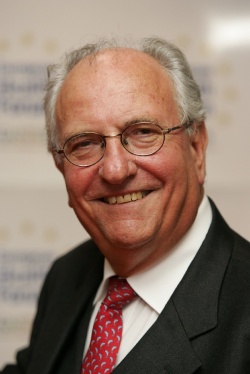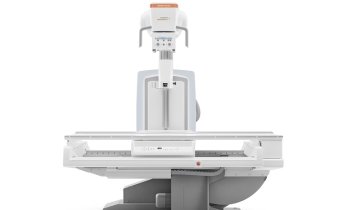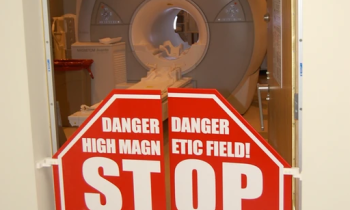Crisis as an opportunity
Rarely have the topics at the EHFG been so relevant to the current international economic crisis – reason enough for EH correspondent Christian Pruszinsky to interview the Forum’s founder and outgoing President Professor Günther Leiner.

In times of crisis, governments often cut healthcare budgets – particularly for hospitals. Are cuts in services therefore preprogrammed? Prof. Leiner: ‘Unfortunately, it’s a common misbelief that hospital costs can be tackled through cuts in services. Demographic developments alone tell a different story. Clever rationalisation means: Making more with less, better utilisation of existing resources, shaping instead of administrating, rethinking structures, making systems more efficient. The potential is there – it just needs to be made use of.
This sounds simple – why isn’t it happening? ‘It does happen, but not always and not everywhere and not with the same intensity. Take hospital density, for instance. In many countries – not least in Austria and Germany – there are too many hospitals, some are too small, have too many beds, too many admissions. Everyone with an insight into this knows the figures. However, there are also countries, such as in Scandinavia or the Netherlands, where the structures are already more streamlined, and that, I must emphasise, whilst maintaining the same level of care for patients. The Netherlands was the trailblazer in reducing hospital numbers and is considered an example for many quality indicators – for example in the fight against multiresistant hospital bugs.’
This means hospital closures, longer distances for patients to travel, difficulties in obtaining necessary care. ‘I beg to differ. A hospital’s economic problems cannot be solved by preventing sick people from access to necessary treatment, or by making it more difficult, but we can make sustainable changes to the structures. Not every smaller hospital should offer all services. We need specialisation and a division of labour. This means better utilisation of existing savings potentials, more efficiency in care and improved treatment quality.’
Cutting costs with simultaneous improvements in treatment quality sounds like squaring the circle. ‘No, it’s just a logical consequence from numerous international studies. Would you like some examples? Johns Hopkins University found that in hospitals with fewer than six heart transplant operations per year the mortality risk for risk patients is 67% higher than in centres that carry out more than 15 such operations a year. ‘A new study at Stanford University has shown that, with such diverse interventions as aortic aneurysm, bypass or gastric band operations the frequency with which a hospital carries out these interventions is in a clear, inverse relationship to the rate of complications. The mortality risk in specialist centres with high case numbers is 11% lower than in smaller hospitals for heart attacks, 9% for cardiac insufficiency and 5% for pneumonia. Generally speaking: the more interventions the lower the number of mortalities and complications and vice versa. The EHFG communicates all these aspects to decision makers in the worlds of politics, economy, science and specialist associations during its varied programme of events.’
The EHFG is celebrating a small anniversary. Taking stock, what stands out for you? ‘We’ve managed to establish the forum as an international meeting place for experts and decision makers from all parts of the healthcare system and as a central discussion forum on health related policies in Europe. With the EHFG we have developed a network where the different, relevant forces – politics, the economy, science and non-governmental organisations - meet at the highest European level. This platform allows us to work through and discuss important health-related proposals from the EU and the WHO. The results of our forums are generally considered valuable and help many with further work in their national committees.’
What makes you particularly proud? ‘The composition of the more than 600 participants has clearly developed and changed over the years. Not only that the degree of internationalisation – key word Eastern European expansion – has strongly increased, but also that the interests of the participating officials have multiplied. EU commissioners, ministers, health politicians, representatives from the WHO and World Bank, decision makers from large medical devices and pharmacological companies, participants from statutory and private insurers, numerous NGOs, patient associations, representatives of the media, decision makers in medical, nursing and administrative occupations, representatives of public institutions and from private hospitals meet in Gastein nowadays and enjoy the unique atmosphere. ‘I’m really proud that the forum’s work is increasingly delivering profound, thought-provoking impulses for dayto- day political life and that we can have a direct impact on health-related political decisions in Brussels and/or national bodies. I’m also proud of the introduction of the European Health Award, for which high quality, practiceoriented projects are submitted year after year. I’m also particularly proud of all my wonderful colleagues who have contributed to our successful groundwork right from the beginning.’
We understand that wish for the 15th EHFG to be the last under your leadership. What are your hopes for the future? ‘Obviously I hope for health and for a little more time for my private life. I will always be involved with the forum in the future and obviously still at hand. After all, it is like my “baby”. I would like to see it being carried on in the spirit of the four pillars, i.e. integration into politics, the economy, science and NGOs, because this makes it unique. I am happy to have found the perfect successor in the shape of Professor Helmut Brand and to hand over an organisation to him in a good state. After all, a lot remains to be done – particularly in these turbulent times. The crisis is an opportunity for us to prove ourselves.’
13.09.2012









